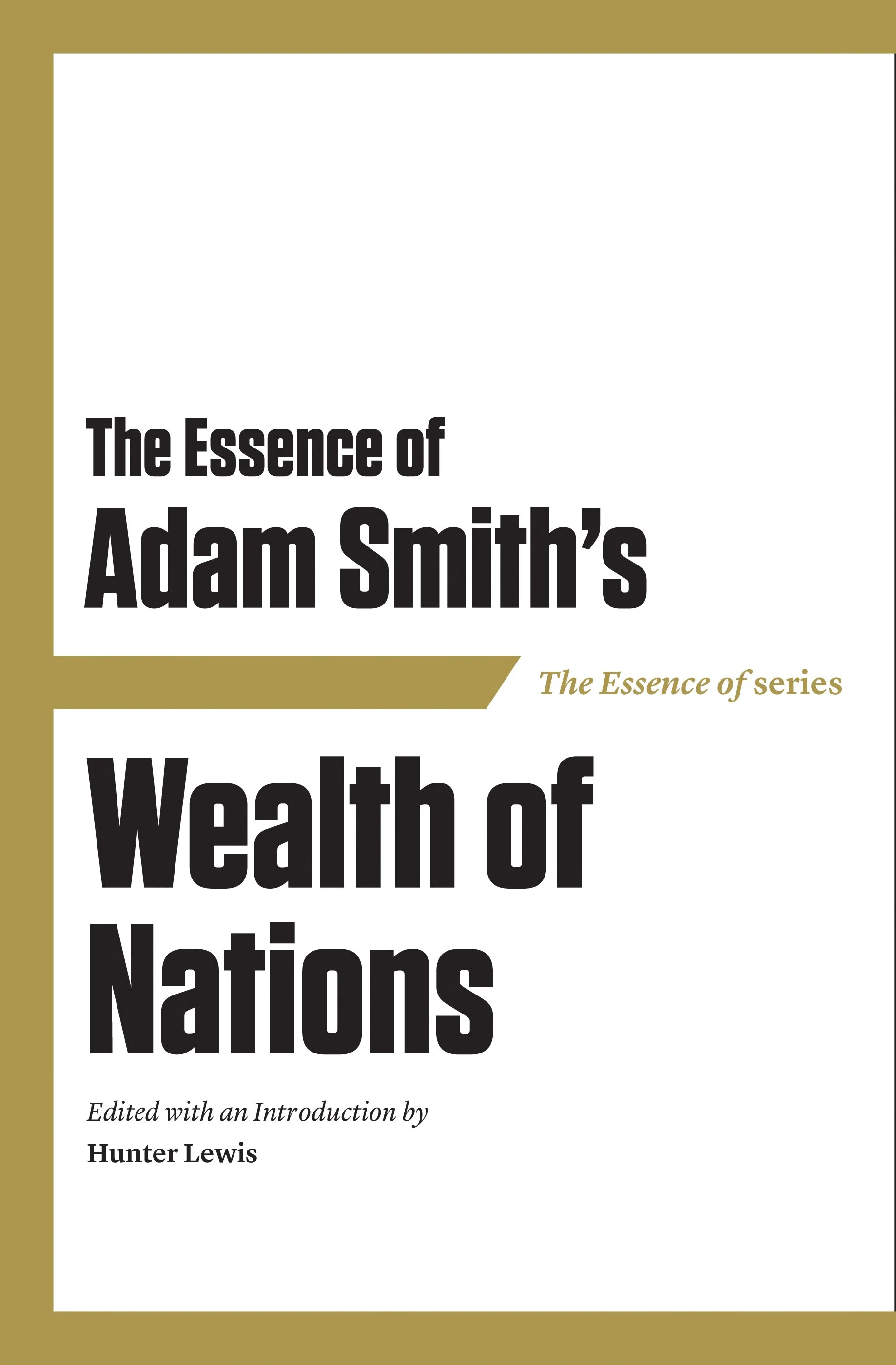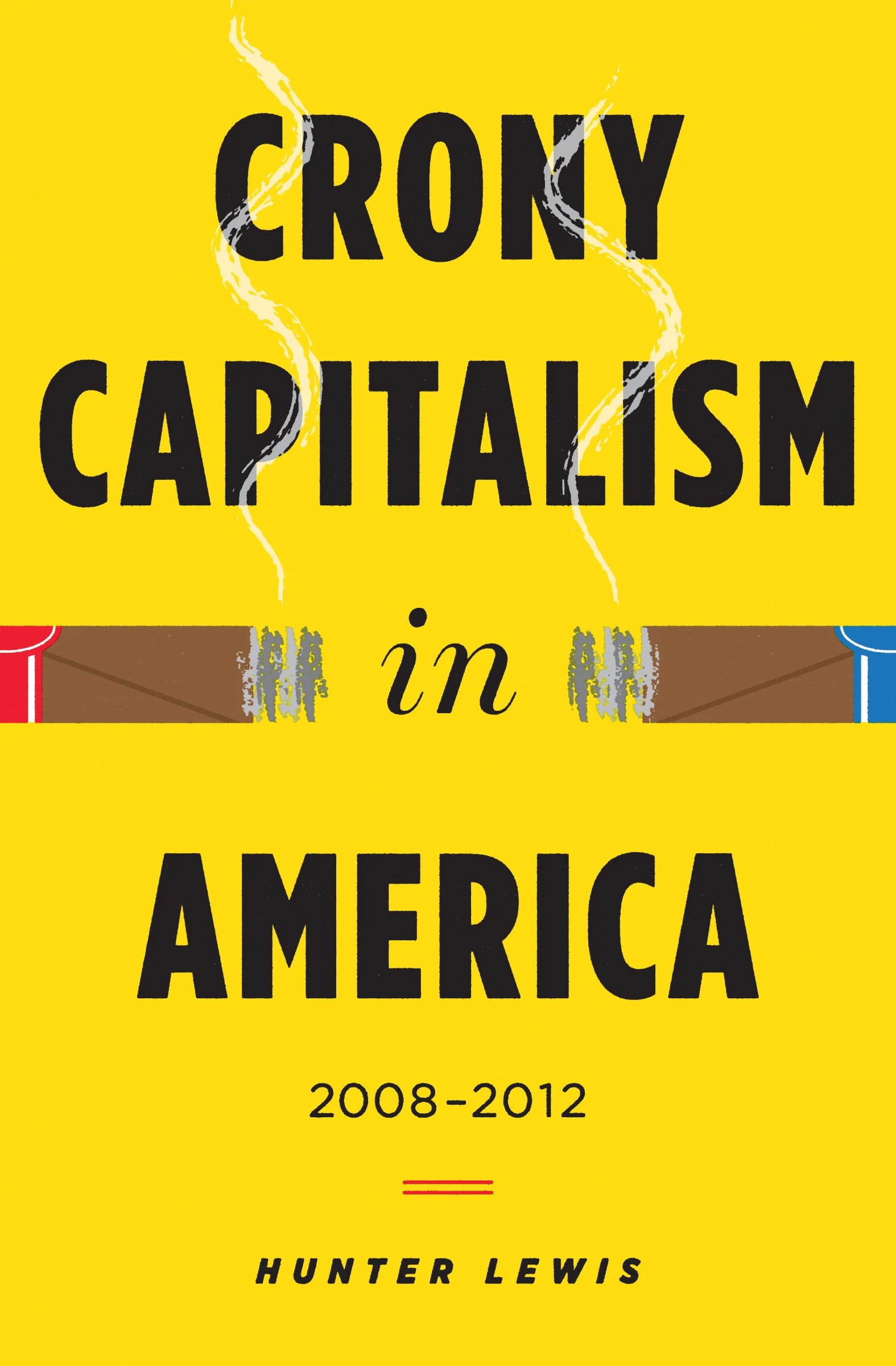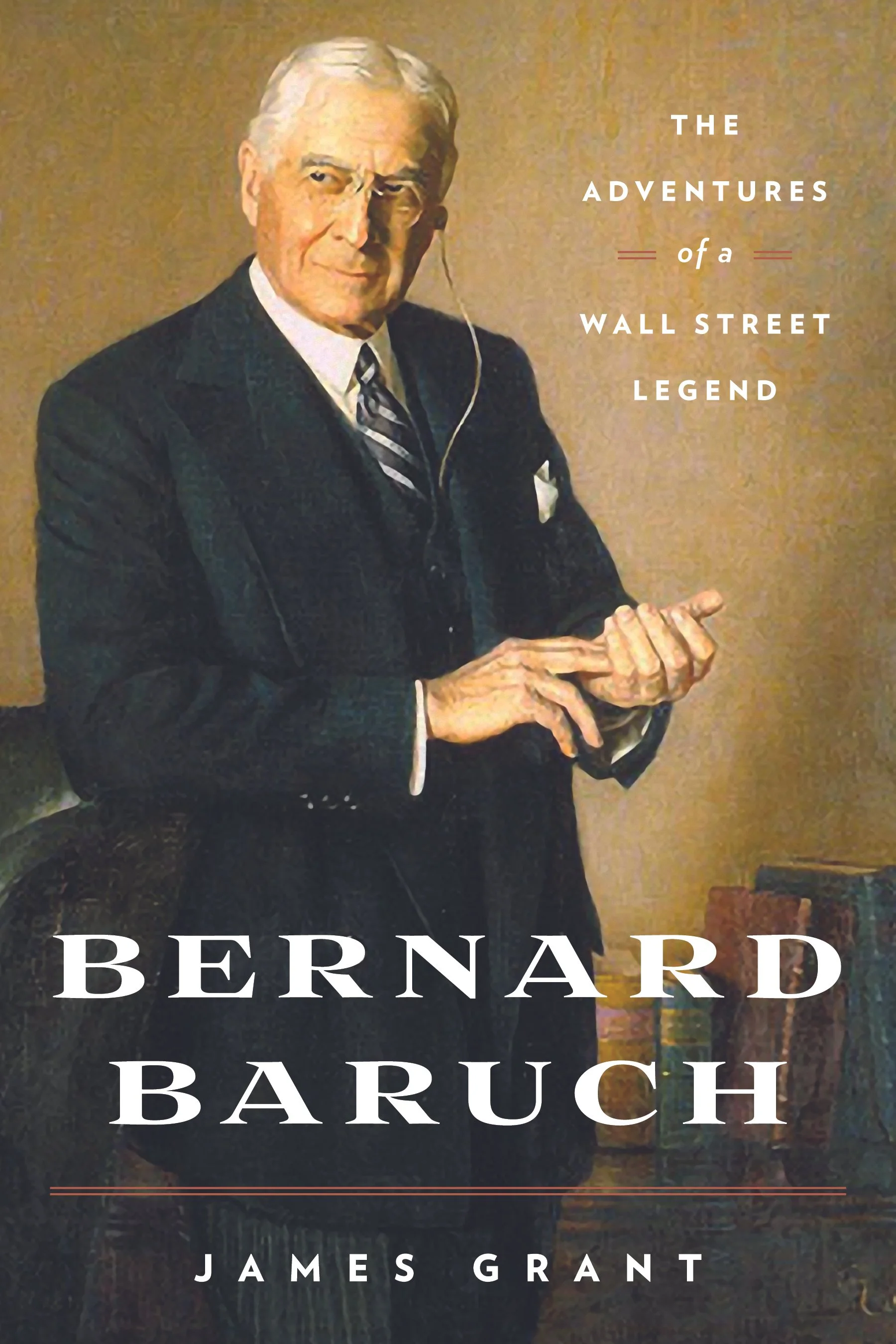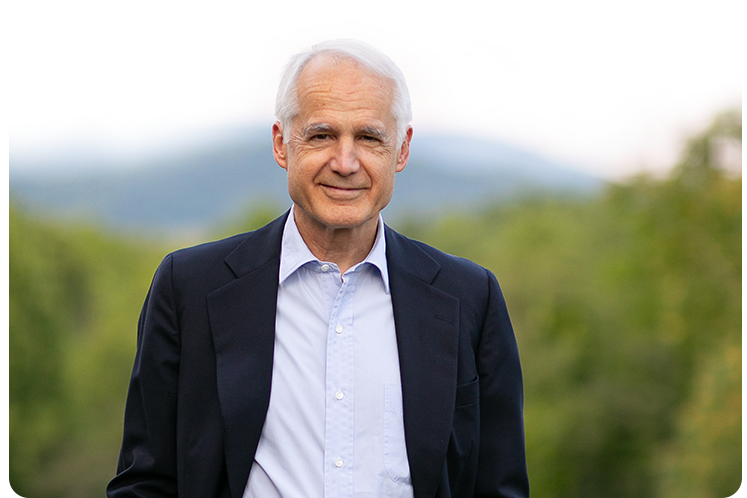Where Keynes Went Wrong
And Why World Governments Keep Creating Inflation, Bubbles, and Busts
Author: Hunter Lewis
ISBN: 978-1-60419-044-1
eISBN: 978-1-60419-052-6
Among Top Seven Books Recommended Year End by Barron’s Economics Editor
Among Top Five Finance and Economics Books 2009 Recommended by 800-CEO-Read
Available From:
John Maynard Keynes died in 1946, but his thinking continues to dominate world economic policy. Bushonomics, Obamanomics, and the policies of the U.S. Federal Reserve have all ultimately been derived from Keynes’s book, The General Theory of Employment, Interest, and Money, usually referred to as Keynes’s General Theory or The General Theory.
What does Keynesian economics tell us about the Crash of 2008? First that crashes are an inevitable part of Capitalism—they reflect what Keynes called the “animal spirits” of private markets. Second that the Crash creates a downward spiral that feeds on itself. If Keynesian remedies are not promptly applied, there may be no economic recovery. These remedies, the essence of Keynesianism, include the U.S. Federal Reserve printing money and lowering interest rates, bailouts, and economic stimulus through deficit spending.
Where Keynes Went Wrong demystifies Keynesian economics. It reveals what John Maynard Keynes really said. And it offers a startling and persuasive argument that Keynesianism is leading us down a path not to genuine economic recovery, but to inflation, bubbles, and crashes.
Overview
-
Where Keynes Went Wrong is written in a clear and accessible style. Anyone can read it. You do not need any prior education in economics.
Libertarians, followers of the Austrian School of Economics, readers of economist Ludwig von Mises and economic thinker and commentator Henry Hazlitt, and fans of congressman Ron Paul will be immediately drawn to its critique of Keynesianism and of government economic intervention in general. But Lewis makes clear this is not a politically partisan book—just the opposite. It faults both George W. Bush and Barrack Obama, in Republicans and in Democrats.
Lewis makes clear here and in other writings that the primary goal of economics should be to end world poverty and to do so in a way that is both economically and environmentally sustainable. In his view, Keynesian policies are not helping the poor, indeed are making matters much worse for them, and this point of view drives his critique of current economic policies.
Some commentators have recently linked Lewis’s book to Ron Paul’s End the Fed. There are parallels. Both are sharply critical of Keynes. Both generally reject what might be called Bush/Obamanomics. Perhaps a key difference between Lewis and other critics of Keynes and Bush/Obamanomics is that Lewis is not just a defender of free markets. He also would like to see a major expansion of the nonprofit sector of the economy, a theme developed in Lewis’s previous book, Are the Rich Necessary?
In any case, the chief virtue of Where Keynes Went Wrong is that it clearly lays out, really for the first time, exactly what Keynes said. It therefore enables the reader, with or without the help of Lewis’s critique, to reach his or her own conclusion about the validity of Keynesian economic policy prescriptions.
-
Part One: Introduction
1: Commonsense Economics
Part Two: What Keynes Really Said
2: Drive Down Interest Rates
3: Spend More, Save Less, and Grow Wealthy
4: The Immoralist (A Digression)
5: What to Do about Wall Street?
6: Look to the State for Economic Leadership
7: In an Economic Crisis, Print, Lend, Borrow, and Spend
8: Markets Do Not Self-Correct
9: Yes, No, and Again Yes to Economic Globalization
Part Three: Why Keynes Was Wrong
10: “Drive Down Interest Rates” (and Reap a Whirlwind of Inflation, Bubbles, and Busts)
11: Spend More, Save Less, and Grow Poorer
12: What (Not) to Do about Wall Street
13: (Do Not) Look to the State for Economic Leadership
14: Government for Sale (A Digression)
15: In an Economic Crisis, Printing, Lending, Borrowing, and Spending Just Sow the Seeds of the Next Crisis
16: Markets Do Self-Correct
17: Yes to Economic Globalization
Part Four: More on Keynes
18: How Keynesian Was Keynes?
19: Keynes Speaking
20: Keynes Writing
Part Five: Conclusion
21: Upside-Down Economics: What Keynes Would Have You Believe
22: What Is Really Wrong Here: The Central Paradox of Keynesianism
Part Six: Envoi
23: Saying Goodbye to Keynes
Endnotes
Citations
Index
-
ISBN-13: 978-1-60419-044-1
Publication date: 09/16/2011
Pages: 387
Product dimensions: 6.12 x 0.87 x 9.09 inches
-
-
When the world financial system failed in 2008, world governments intervened decisively. Guided by Keynesian economics teams with impeccable credentials, they intended not only to “stimulate” the economy, but to “jolt” it back to borrowing and spending as usual. All of these actions were taken from a playbook devised by British economist John Maynard Keynes, author of The General Theory of Employment, Interest, and Money and by far the most influential social thinker of the past century.
But . . . not all economists agree. Following the Crash of 2008, some critics of Keynesianism ask: Isn’t the root problem that Americans have borrowed too much? Will even more borrowing, this time government borrowing to support deficit spending, really help us out of the bind we are in?
Is it right to borrow to finance bank bailouts? Will economic stimulus—also financed by government deficits—really help? Should the Federal Reserve be printing money so rapidly? Will this give us a genuine economic recovery? Can we really rescue Capitalism by trying to borrow and spend our way out of debt?
Also: are private markets really to blame for the Crash of 2008? Wasn’t government even more responsible? If so, can we expect government to fix the problem?
In short, should we be relying so completely on Keynes? What if he is wrong? What evidence is there that he is right?
These are important questions. If Keynes is wrong, then so are the economic policies of Barack Obama, George W. Bush, and virtually all world governments today. Instead of giving us a sustainable economic recovery, they will just lead to inflation, bubbles, and crashes.
Where Keynes Went Wrong presents the economic arguments that will shape our future in a lively, stimulating, and transparently clear style.
“In this podcast we’re looking at Where Keynes Went Wrong, And Why World Governments Keep Creating Inflation, Bubbles, and Busts, by Hunter Lewis. This book lays out the key ideas of one of the most influential social thinkers of the twentieth century, John Maynard Keynes. The author argues that Keynesian theory is ineffective in tackling an economic crisis.”
Book Insight - MindTools Podcast (7/30/2012)
Reviews
“…[An] impassioned…and…much needed book. In plain prose,…Hunter Lewis…begins by patiently walking us through precisely what Keynes said…then reveals why Keynes’s work is ‘remarkably unsupported by evidence or logic.’ Lewis does much more besides, showing how Keynesianism has lived in the minds and hearts of politicians, with disastrous results.”
Gene Epstein | Barron’s Magazine (12/14/2009)
“Lewis has exposed with unmatched clarity the lineaments of Keynes’s system and enabled us to see exactly its disabling defects. Keynes defied common sense, unable to sustain the brilliant paradoxes that his fertile intellect constantly devised. Lewis’s book is an ideal guide to Keynes’s dangerous and destructive economics. . .
…As Lewis points out, the entire Keynesian edifice rests on a central paradox: impeding the central mechanism of the free market will restore prosperity. . . . [ In actuality,] Keynes’s ‘remedies’ for depression paralyze [the] process of price adjustment. . . .
Lewis brings out fully that Keynes had much more in mind than a cure for depressions. He thought that boom conditions could be permanently maintained by lowering the rate of interest nearly to zero. In that way, the scarcity of capital could be ended. In The General Theory, Keynes said: “The remedy for the boom is not a higher rate of interest but a lower rate of interest! For that may enable the boom to last. The right remedy for the trade cycle is not to be found in abolishing booms and thus leaving us in a semi-slump; but in abolishing slumps and thus keeping us permanently in a quasi-boom.” (pp. 20-21)
Is this not an incredible doctrine? The interest rate is to be lowered by an expansion of credit. But production can increase only through an increase in capital goods. Putting pieces of paper designated “money” into circulation will not by itself increase prosperity, even if all the new money is, as Keynes wished, spent and not hoarded. To think otherwise is to indulge in magical thinking. . . .”
David Gordon | LewRockwell.com (4/18/2013)
-
“Lewis (cofounder, Cambridge Assoc.; How Much Money Does an Economy Need?) sets out to refute Keynesian economics and show that it’s what has brought the world to the present crisis. Through paraphrasing and verbatim quotations, he presents Keynes’s economic arguments from his The General Theory and other writings and then offers counterarguments. Regarding Keynes’s proposition that government needs to regulate fairness in the markets, Lewis asks how government officials influenced by politics can truly make things fairer. Lewis extends the debate to the current crisis and says that the low-interest-rate environment promulgated for years by governments was Keynesian and the very cause of the current credit crisis and recession. In the end, he dismisses Keynes as a promoter of false utopian theories. Lewis has done a service, even if in the negative, of concisely and critically summarizing Keynes’s economic theories, and his book will make readers think.
…Lewis’s…work is highly recommended to anyone seeking both to understand and to question Keynesian economics.”
Library Journal
——
“Hunter Lewis has written a splendid book called Where Keynes Went Wrong. The dissection of the English economist who died in 1946 is especially timely, given that the past two administrations and the current one are identical in believing wholeheartedly in…key Keynesian dogma.”
Patrick McIlheran (The Milwaukee Journal Sentinel)
——
“[This] compelling, powerful, and extremely readable book…is fantastic….’Must’ reading for those who are concerned with the future of our country.”
Kevin Price (CBS and CNN Radio and BizPlusBlog)
——
“[This] highly readable…book fills a missing niche in the literature: a debunking of Keynes for the general reader. . . . Lewis is an excellent writer [and] demystifies…a famously difficult author to understand. . . . The work contains so many gems that it would be impossible [to list them all]. Reading Lewis, it’s somewhat shocking to see how weak [Keynes’s] arguments are and how poorly they stand up to any kind of logical examination.”
Robert Blumen (Mises.org)
——
“Defogs what Keynes said [in] terms that a layman can understand.”
Cecil Johnson | Fort Worth Star-Telegram
——
“Should one read Where Keynes Went Wrong by Hunter Lewis? My answer is yes.”
Suzanne Christensen(Sacramento Book Review | San Francisco Book Review)
——
“In the book Where Keynes Went Wrong and Why World Governments Keep Creating Inflation, Bubbles and Busts, Hunter Lewis takes on one of the most influential Economists in the history of the modern world. . . .
As an example, Mr. Lewis takes on Keynes’ famous “Paradox of Thrift.” Keynes Paradox of Thrift is, stated very simply, that while in times of recession it may be good for the individual to save, but if everyone saves, then it is detrimental to the economy. The implication is that demand drives the economy and for demand to exist, money must be spent. Lewis debunks this in Chapter 10 with the following:
“The bad investments of the recent past need to be liquidated, or at least marked down in price. Until this happens, savers should build their cash positions and refuse to use them. To invest at the old, unrealistic asset price would just continue the old pattern of throwing away money.”
The obvious argument here is that there is no paradox. Spending savings in a recession does not address the economic problems and serves only to drag out the inevitable bubble burst. Or as Lewis puts it, “…consuming more alcohol will not cure the hangover.”
I…highly recommend this book.”
Travis Kent, Economic Perspectives(Econpers.wordpress.com)
——
“I recommend this book; it is an eye opener.”
——
“In Where Keynes Went Wrong: And Why World Governments Keep Creating Inflation, Bubbles, and Busts, author and financial expert Hunter Lewis… begins by demystifying Keynes… revealing what he actually said in his General Theory of Employment, Interest, and Money and other works….[He] reveals the folly of creating policy based on unproven economic theories of the past, and dares us to question the policymakers that are shaping our future.”
National Book Review
——
“Where Keynes Went Wrong…is thoroughly readable. . . . Economists will find copious endnotes and citations, but general readers will find thought-provoking analyses and opinions about the economy and many historic examples.”
Joanne Conrad (Livingston County News)
——
“Hunter Lewis . . . has . . . effectively showed . . . how Keynesian economic policy theories are significantly flawed, and in many cases completely . . . unfounded.”
The Examiner (Boston and Tampa)
——
“[Makes] otherwise complex subjects altogether accessible and even enjoyable for any readers who are themselves neither academics nor economists. . . . Highly recommended for anyone who possesses so much as a casual interest in economics, history, or even contemporary politics.”
Post & Courier (Charleston, SC)
——
“… May be the best book on Keynes [in half a century].”
Gary North (GaryNorth.com)
——
“. . . A very readable book that does not require a degree in economics to understand. . . . Highly recommended.”
Henrik Raeder Clausen (EuropeNews)
——
“Reading List: If Not Galbraith, Who?”
James Grant | The Wall Street Journal (9/25/2010)
——
“Hunter Lewis provides an excellent overview and refutation of Keynes’s work that informs readers who are trying to understand the roots of the economic crisis affecting us and provokes them to participate in the solution.”
Christopher Whalen (Reuters)
——
“Instead of reprising Hazlitt’s work, Lewis gives us an easily read book that concentrates its fire on Keynes’s major ideas. Under that fire, the Temple of Keynes is reduced to less than rubble….Bravo to Hunter Lewis for making the case against him so effectively.”
George C. Leef (Freedom Daily)
——
“I recommend Hunter Lewis’s book Where Keynes Went Wrong as important reading for those interested in economic theory…”
Larry Swedroe | CBSNews.com (9/1/2011)
——
“… Hunter Lewis, the author of Where Keynes Went Wrongpoints out repeatedly from Keynes’ writings his view that interest rates are almost always too high, and that interest rates should only rise when inflation is rising quickly….”
David Merkel, CFA (SeekingAlpha.com)
——
“Hunter Lewis offers a critique of Keynesian economics from the perspective of the Austrian school economics…”
Jerry H. Templeman, CFA | CFAInstitute.org (9/08/2017)
——
“The book is put together brilliantly. The author quotes passages from Keynes…”
Michael Ashton | InflationGuy.Blog (4/11/2016)
——
“Mr. Lewis succeeds in pointing out several flaws in Keynes’ theories that seem to escape world leaders when setting policy….”
Travis Kent | Economic Perspectives with Hopeton Hay on KAZI 88.7 in Austin, TX (12/16/2009)
——
“A well organized book … Point … Counterpoint…
Most works take up one side or the other on economic philosophy. There is more written about Keynes or interpretations of Keynes. There are fewer books about what alternatives may be available to these policies. This is one of the few books, if any, written that compares point by point the differences between what Keynes wrote and counterpoints to his thoughts.”
Larry R. Frank, Sr. MBA, CFP | Amazon Review
——
“The author, Hunter Lewis, argues that Keynes’ theories are untested, and almost entirely based on hunches and educated guesses, not fact.”
Heather Levin (TheGreenestDollar.com)
Related Reading
About the Author
Hunter Lewis
Hunter Lewis, co-founder of global investment firm Cambridge Associates, has written nine books on moral philosophy, psychology, and economics, including the widely acclaimed Are the Rich Necessary? (“Highly provocative and highly pleasurable.”—New York Times). He has contributed to the New York Times, the Times of London, the Washington Post, and the Atlantic Monthly, as well as numerous websites such as Forbes.com, Fox.com, RealClearMarkets.com, and Townhall.com. He has served on boards and committees of fifteen leading not-for-profit organizations, including environmental, teaching, research, cultural, and global development organizations.
Interviews
Mind Tools Podcast - Book Insight - 7/30/2012:
“In this podcast we’re looking at Where Keynes Went Wrong, And Why World Governments Keep Creating Inflation, Bubbles, and Busts, by Hunter Lewis. This book lays out the key ideas of one of the most influential social thinkers of the twentieth century, John Maynard Keynes. The author argues that Keynesian theory is ineffective in tackling an economic crisis.”









